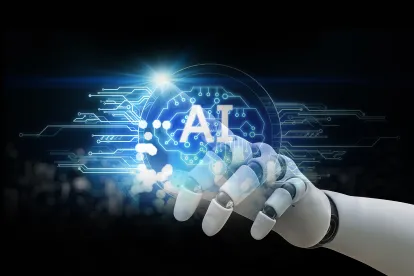Up until now, employers have been able to use artificial intelligence (AI)-powered hiring and promotional tools without worry about compliance with AI-specific laws. On July 5, 2023, that changed. New York City passed Local Law 144, legislation restricting employers’ use of artificial intelligence-driven employment tools.
Local Law 144 prohibits employers from using an automated employment decision tool (“AEDT”)[1] in hiring, promotion, and other employment decisions, unless the employer first ensures that the tool has been audited for bias within the preceding year. These AI-powered tools—ranging from programs that screen resumes for qualifications to those that assign scores to candidates based on mannerisms and responses in video interviews—are increasingly used by employers. However, AEDTs have generated controversy due to the potential for bias. Now, New York City employers are required to independently audit their AEDT systems for bias and publish the results on their company websites, or face fines. Local Law 144 also requires employers to provide job candidates with notice about the use of an AEDT system and offer them an opportunity to opt out. Employers found in violation of Local Law 144 face a $500 fine on the first offense and a $1,500 fine on each subsequent one.
New York City Local Law 144 comes amid a global push to regulate the use of AI and may provide a model for auditing rules that can be adopted in other jurisdictions. However, it does not provide any legal threshold for when AI-based hiring or recruiting should be considered biased or to have a disparate impact on protected groups. The EEOC, which has publicized its intent to review AEDTs with scrutiny, has provided limited endorsement for a “rule of thumb,” which states that if a hiring test has a selection rate of less than 80% for a protected group, compared to others, then such a gap likely indicates bias.[2]
Notably, other states and jurisdictions have also enacted AI-based legislation:
-
In 2020, Illinois enacted the Artificial Intelligence Video Interview Act, 820 ILCS 42, to govern the use of AI to assess video interviewees for jobs. Employers recruiting in Illinois must (1) obtain consent from applicants before using AI, after explaining how the AI works and its evaluation standards; and (2) ensure proper control of video recordings and deletion upon request. Unlike New York City’s law, however, the Illinois law does not include civil penalties.
-
Maryland passed an AI-employment law in 2020, B. 1202, which prohibits employers from using facial recognition technology during an interview for employment without consent. Consent requires a signed waiver that states: (1) the applicant’s name; (2) the date of the interview; (3) that the applicant consents to the use of facial recognition; and (4) confirmation that the applicant read the consent waiver. H.B. 1202 does not include a specific penalty or fine.
-
Many states are creating councils to oversee AI and new regulations, including Alabama, Colorado, Illinois, Maryland, Vermont and Washington with pending legislation to create similar entities in many more states.
-
On May 24, 2022, Vermont created the Artificial Intelligence Commission to support the ethical use and development of artificial intelligence in the state, relating to the use and oversight of artificial intelligence in state government. VT H.B. 410.
-
Similar to Vermont, Colorado passed CO S.B. 113, which created a task force for consideration of facial recognition services. This task force is directed to, among other issues, recommend whether the scope of the task force should be expanded to include consideration of artificial intelligence.
Since 2018, states have ramped up legislation directly related to artificial intelligence and the predicted advances in technology. Local Law 144 is the most comprehensive regulation to date of the use of artificial intelligence and machine learning applications in human resources. But it is certainly not the first piece of legislation on the books governing the use of AI in the workplace. Other jurisdictions are expected to quickly follow suit given the recent media attention to ChatGPT and other AI applications. Employers that use automated decision-making for hiring and promotional decisions should start considering now whether they need to modify these tools to ensure that they do not contain bias.
FOOTNOTES
[1] An AEDT is a computer-based artificial intelligence-driven tool that 1) uses machine learning, statistical modeling, data analytics, or artificial intelligence, 2) helps employers and employment agencies make employment decisions, and 3) substantially assists or replaces discretionary decision-making. See https://www.nyc.gov/assets/dca/downloads/pdf/about/DCWP-AEDT-FAQ.pdf.
[2] Miller Canfield has previously published an analysis of the EEOC’s guidance. See The Adverse Impacts of AI in Employment Procedures Under Title VII: Miller Canfield.







 />i
/>i

